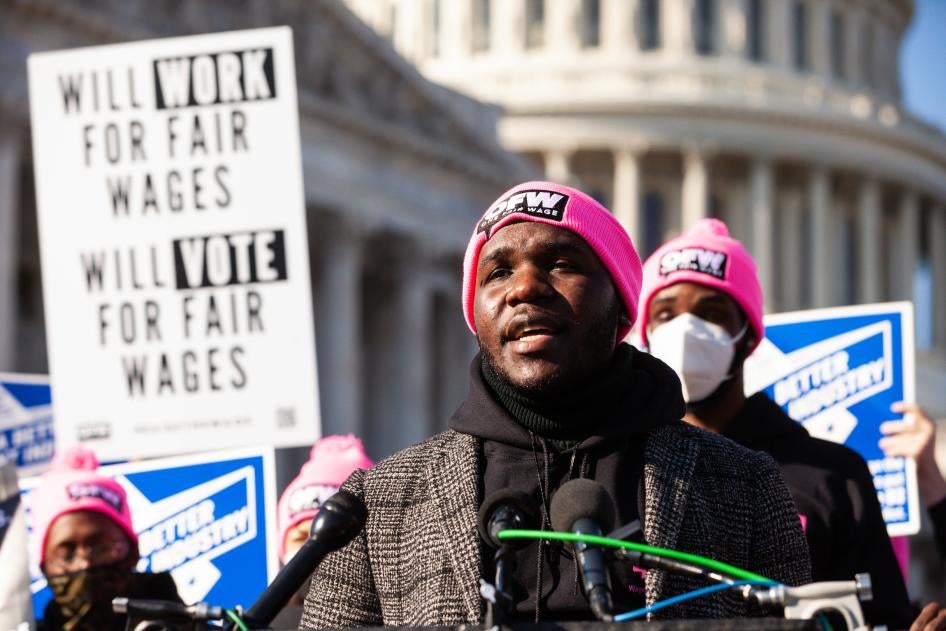Voters in Washington, DC, and Portland, Maine, can decide this November to eliminate a two-tiered minimum wage system that has denied many workers their right to a living wage.
Under the Fair Labor Standards Act, employers can pay tipped workers just US$2.13 an hour, rather than the federal minimum wage of $7.25. If tips don’t bring workers’ total earnings to at least equal the federal minimum wage, the employer must make up the difference. In practice, however, this mandate is often ignored. A federal review of employment records from 2010-2012 revealed that 83.8 percent of full-service restaurants improperly calculated wages for tipped workers or committed other wage and hour violations.
While some US states abolished this two-tiered wage system, a direct legacy of slavery, 43 states still allow subminimum wages for a tipped work force that is nearly 70 percent female and disproportionately Black and brown. According to the Bureau of Labor Statistics, restaurant workers occupy four of the ten lowest-paid occupations in the US. These workers are at least twice as likely to live in poverty, with even higher rates among workers of color.
The Economic Policy Institute, the One Fair Wage campaign, and others have published research showing that tipped workers in states that eliminated the subminimum wage enjoy higher earnings, face less harassment on the job, and are less likely to live in poverty. It can also reduce race and gender inequities perpetuated by the tipped wage.
In DC, Measure 82 would eliminate the state’s tipped subminimum wage of $5.35 an hour, raising pay to the state’s $16.10 minimum wage by 2027. The measure would not prohibit tips or tipping, but would ensure that a basic minimum wage was paid by an employer. In Portland, Question D would eliminate the subminimum wage and increase the minimum wage to $18 an hour by 2025, directly affecting 1,500 tipped workers and one-fourth of the working population.
These ballot initiatives are long overdue since subminimum wage workers are entitled to a living wage and should not have to rely on the arbitrariness of tips to enjoy that right.











